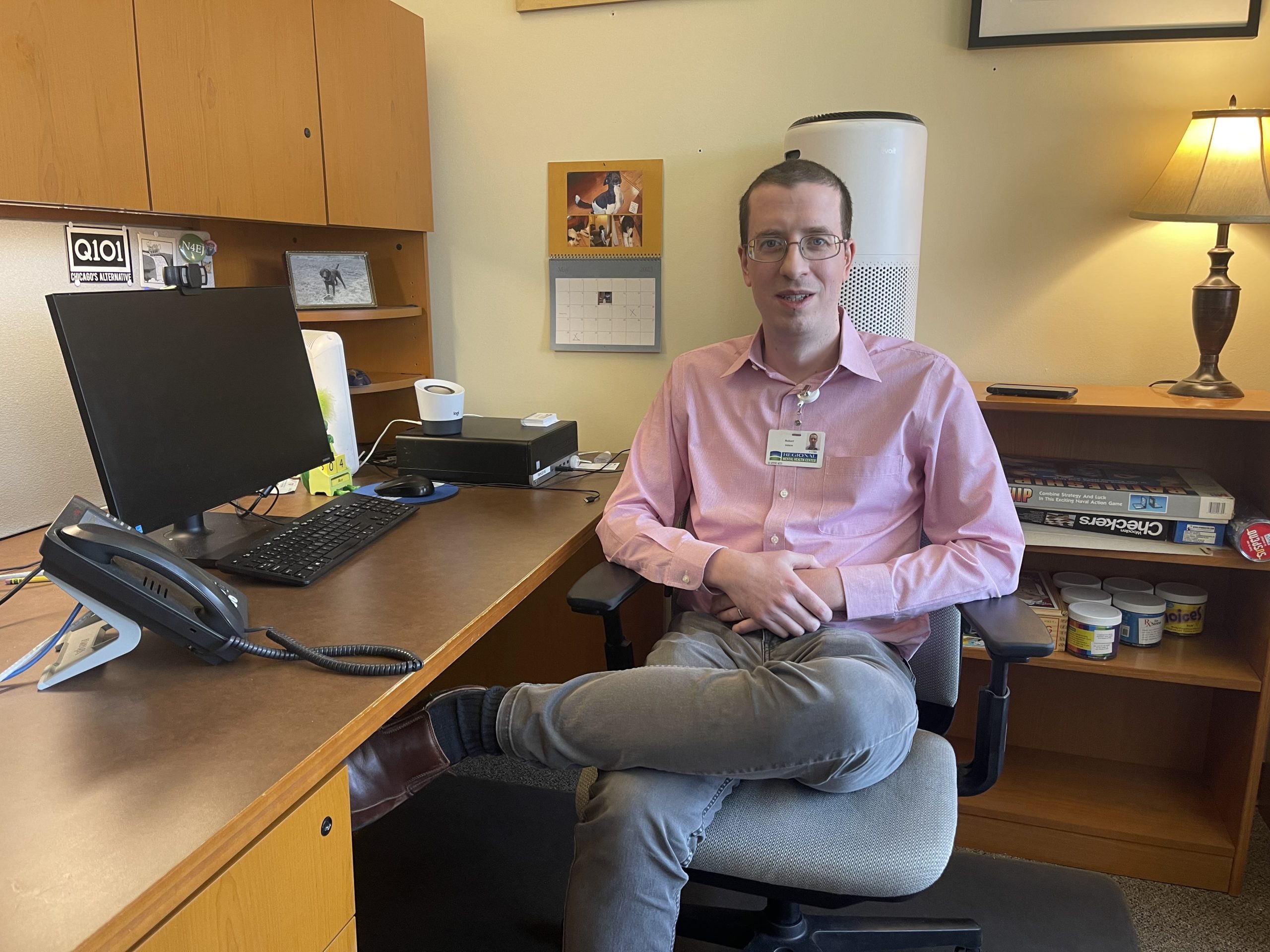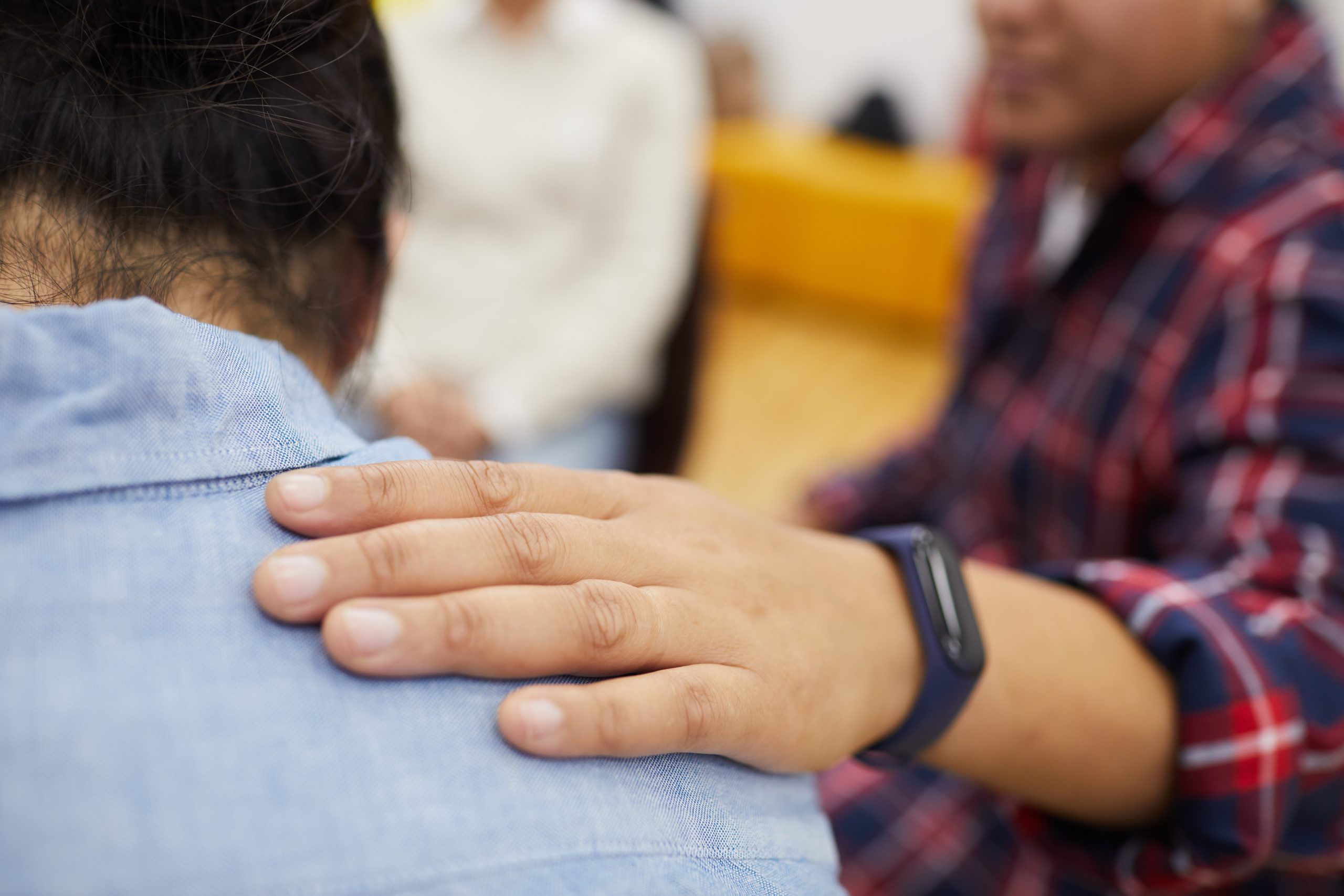
Press Release: Navigating anxiety post-pandemic
May 10 2023

Connection, Megan McGuffage said, is the most rewarding part of her job.
Since July, she has worked as a recovery services case manager for Regional Health Systems, although the word ‘manager’ doesn’t seem to fully cover her responsibilities. McGuffage is a linchpin in addictions recovery, working as part evaluator, part conduit, part rescuer of wrecked lives, part motivational coach, even part chauffeur.
And her presence in clients’ lives represents an extraordinary journey of her own recovery.
All those roles typically start with an initial client meeting, when McGuffage conducts a needs assessment, which can take her in several different directions. She might help a client find housing, attain a GED or job training, receive federal food and nutritional support or other government services. She often connects clients with 12-step communities for addiction treatment. She may update clients’ probation officers, set up clients with parenting classes, even drive them to court.
Most days, she performs a combination of those efforts in pursuit of her primary objective: providing an organized approach for clients to get on track to a successful recovery and healthier life.
“A lot of people come in and they don’t know who to trust or how to trust or what to trust,” McGuffage said. “Just being able to hear their story, hear where they’re coming from, building that rapport, building that trust. I really love the interaction and that connection with them, and I think it helps me be a better service to them.”
Her work is especially significant in September, National Recovery Month. The Substance Abuse and Mental Health Services Administration, which established the observance in 1989, utilizes the month to promote and support “new, evidence-based treatment and recovery practices, the nation’s strong and proud recovery community and the dedication of service providers and communities,” according to SAMHSA’s website.
Whether a month has been set aside to acknowledge her job formally, McGuffage finds the work personally fulfilling every day.
“My favorite part is to see the growth,” she said. “Seeing the progress they’re making, seeing the confidence they’re rebuilding, seeing the light come back in their eyes when they’re accomplishing things that they never knew possible because they’ve self defeated for so long.”
She called it “a gift” to witness clients persevere, start to meet goals, or clean up their lives’ wreckage.
“I love to point it out to them, too,” McGuffage said, “because a lot of times they don’t see it in themselves.”
For years, what she saw in herself was the exact opposite of recovery. It was the steady descent into drug addiction.
After starting to abuse alcohol and drugs in 1999, McGuffage’s drug addiction grew. The low point came in 2014-2017, when she was obtaining heroin by selling pain pills she’d been prescribed after back surgery. She also was injecting a mix of cocaine and heroin intravenously. Then she added crack to the substances she abused.
“I was into anything I could get my hands on,” McGuffage said. She lost her job, apartment “and the respect of everybody.” She was stealing “everywhere she went,” ended up sleeping on the street or living in an abandoned building. She was arrested for drunk driving and reckless driving, overdosed at least twice and attempted suicide.
The turning point occurred in August of 2017, when she was jailed after missing a hearing with her probation officer. McGuffage was sent to a work release program, where she attended a meeting about a 12-step recovery program.
She recalled being angry at the woman who led the session. But when she returned to her room, McGuffage said, she dropped to her knees and asked for help.
“It was the first time I asked for help,” she recalled. “It wasn’t help to live or help to die. I don’t even know what I was asking help for. It was just, ‘help me.’”
She woke the next morning, Aug. 16, 2017, with a completely different perspective. McGuffage has been sober since.
Soon after, she enrolled in Regional Health Systems’ Recovery Matters program. She committed to and “fell in love with” a 12-step program and with helping alcoholics and addicts.
She returned to school, started in a nursing program then realized her calling was addictions counseling and shifted her focus. In 2021 McGuffage earned her bachelor’s degree, interning at Regional Health Systems. Today she is a licensed addictions counselor and has enrolled in a master’s program to become a licensed clinical addictions counselor.
When she thinks about her time in Recovery Matters, McGuffage said she is grateful for the education and the tools it gave her to navigate a sober life. It taught her she was a good person who was sick and making bad choices, she said.
“I needed every part of my journey to be where I’m at today,” she said. “If I didn’t end up at Regional or any of the other stops that got me here, I definitely wouldn’t be behind bars. I’d be in a box.”
Over the five years of her sobriety McGuffage said she has found “the trifecta” that keeps her on track: attending meetings three times a week, therapy every other week, and Reiki—a Japanese technique that fosters relaxation, lessens stress, and promotes overall healing through gentle touch—once a month.
She said she is grateful to be an alcoholic, that her personal experience allows her to think like alcoholics and addicts but be able to resist acting on those thoughts. Her life journey also brings hope to clients, she said, through empathy, patience, and tolerance.
“I’ve learned a lot about self-love,” McGuffage said. “Knowing where I am, who I am and where I came from—all of it allows me to just give that love freely without expectation.”
That love is needed when working with alcoholics and addicts, who don’t love themselves, she said.
“The opposite of addiction is connection,” McGuffage said. “In my belief and my understanding, where I try to always deliver from is a place of love. I think love is the best healer. I really do.”
More information on Regional Health Systems’ comprehensive treatment options.

May 10 2023

Sep 21 2022